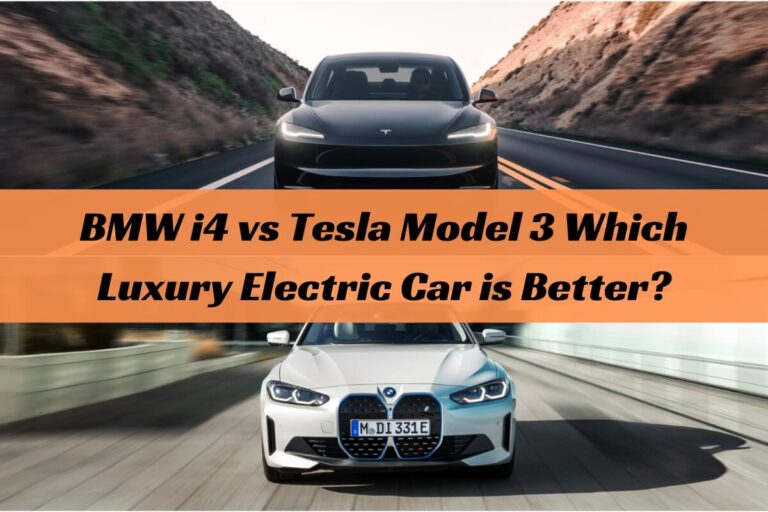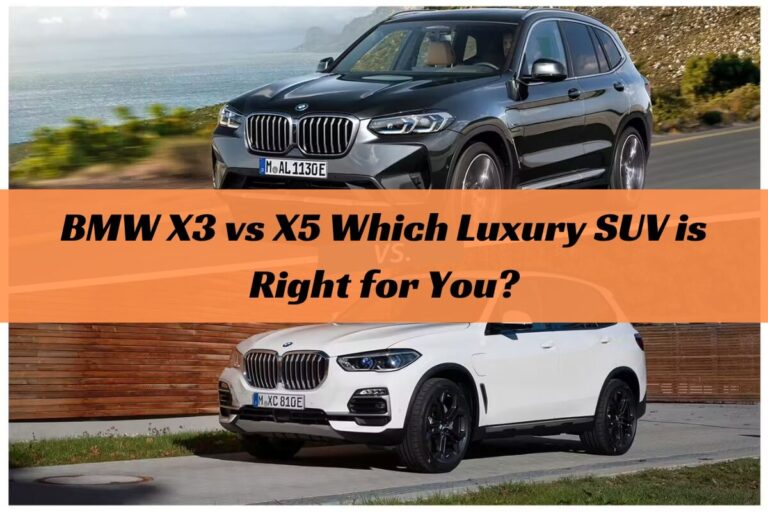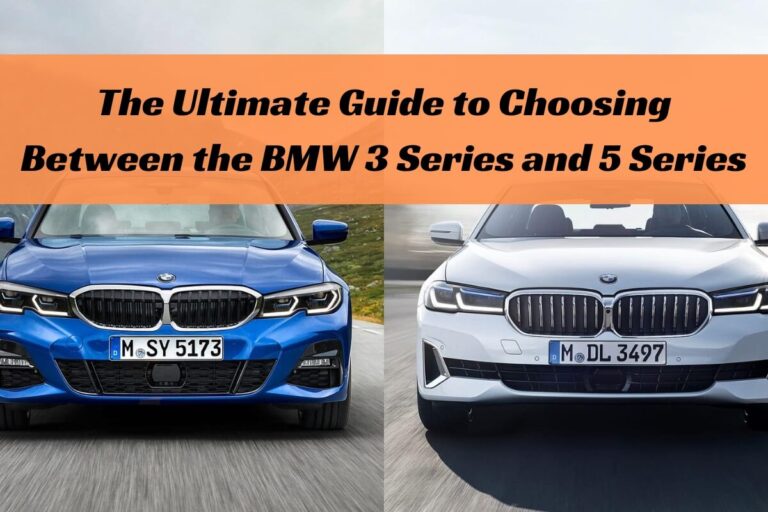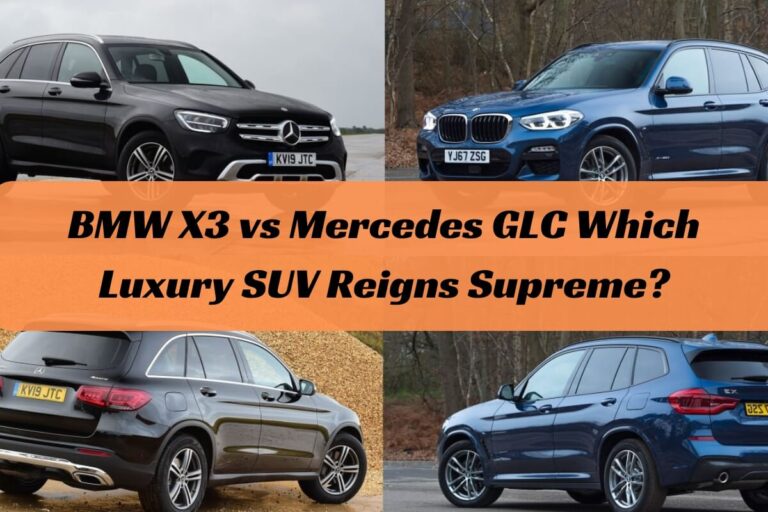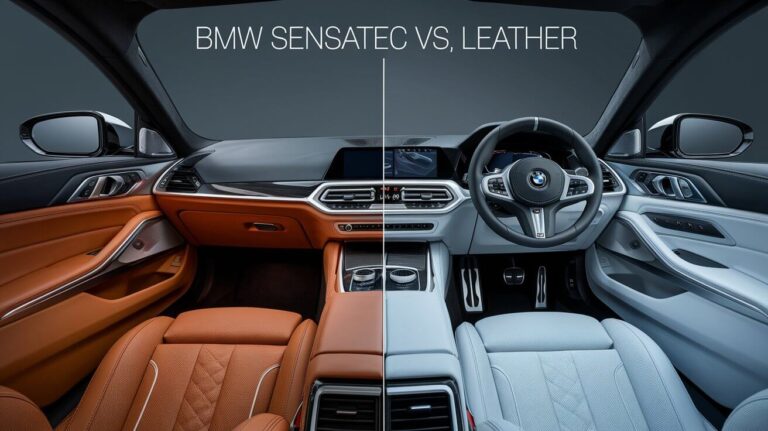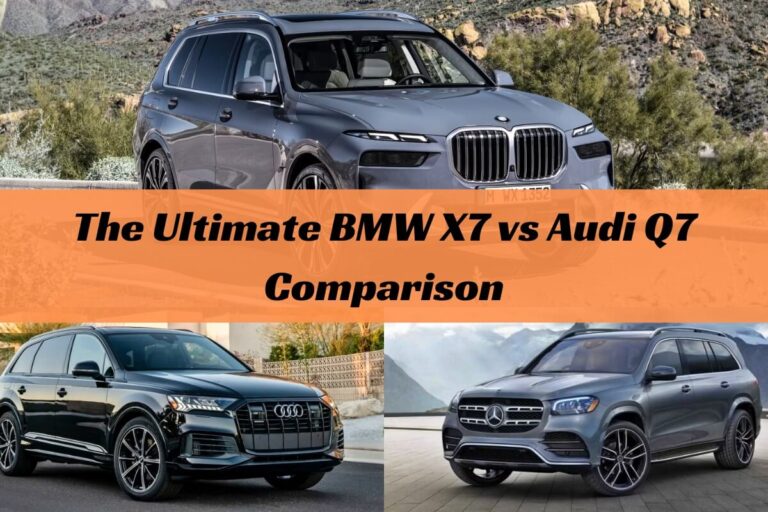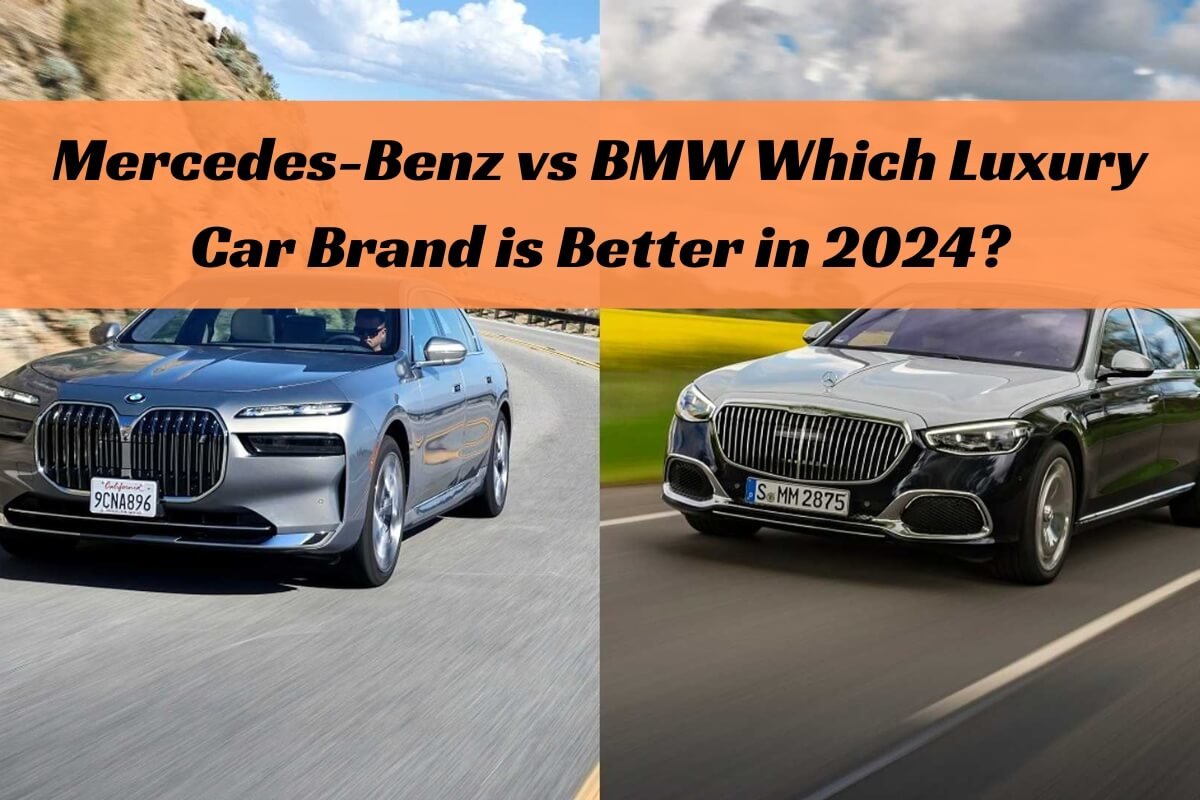
When it comes to luxury vehicles, few automakers carry the same level of prestige and pedigree as Mercedes-Benz and BMW. These German giants have been fierce rivals for decades, competing to produce the finest premium cars packed with cutting-edge technology, exhilarating performance, and opulent comfort.
For those in the market for a new luxurious set of wheels, the question becomes: Which brand reigns supreme – Mercedes-Benz or BMW?
The short answer is that it depends on your specific priorities and preferences as a driver. While both brands excel in different areas, Mercedes-Benz tends to prioritize luxurious comfort and smooth refinement, while BMW leans more towards sporty performance and an engaging driving experience.
In this comprehensive guide, we’ll take an in-depth look at how Mercedes-Benz and BMW compare across key factors like performance, technology, luxury amenities, pricing, reliability, and brand reputation. We’ll explore the strengths and weaknesses of each to help you decide which luxury car brand better aligns with your lifestyle and driving needs.
Performance and Driving Dynamics
When it comes to sheer performance, BMW has traditionally held an edge over Mercedes-Benz. The Bavarian automaker has built a well-deserved reputation for producing some of the most exhilarating driver’s cars on the market, with thrilling acceleration, precise handling, and an unmatched connection between car and driver.
BMW’s performance models like the M3, M5, and various M Sport versions are purposefully engineered to deliver a visceral, engaging drive. They feature powerful yet refined engines, finely-tuned suspension setups, and near-perfect weight distribution that translate to superior agility and control when pushing the limits.
That’s not to say Mercedes-Benz cars lack performance pedigree. The famed AMG division has unleashed absolute monsters like the GT 63 S 4-Door Coupe that can rip from 0-60 mph in just 3.1 seconds. However, AMG’s philosophy tends to emphasize brute force and raw acceleration over nimble handling and direct steering feel that defines BMW’s performance DNA.
For enthusiastic drivers who crave that connected, sports car-like sensation behind the wheel, BMW likely has the edge in driving dynamics. But for those who simply want prodigious power paired with Mercedes’ trademark luxury and smoothness, an AMG model could be the perfect fit.
Technology and Innovation
When it comes to in-car technology, Mercedes-Benz and BMW both bring their A-game with feature-packed infotainment systems and cutting-edge driver assistance suites. However, they take distinctly different approaches in this arena.
Mercedes’ MBUX (Mercedes-Benz User Experience) system combines stunning widescreen displays, natural voice control, and advanced artificial intelligence to deliver a highly intuitive and customized experience for each driver. It can even prompt suggestion based on your habits and preferences over time.
BMW’s iDrive interface has evolved over the years into one of the most user-friendly and responsive infotainment systems on the market. It features a sleek, modern design with touchscreen, gesture, and voice command capabilities to control an array of vehicle functions and settings with ease.
On the advanced driver assistance front, both brands offer comprehensive semi-autonomous capabilities like adaptive cruise control, lane keeping assist, automatic emergency braking, and more. Mercedes’ Driver Assistance Package is particularly impressive, using advanced sensors and cameras to help mitigate collisions from all angles.
Electrification is another area where these brands are rapidly innovating. Mercedes has rolled out its EQ line of all-electric vehicles headed by the flagship EQS sedan with over 350 miles of range. BMW isn’t far behind with the iX and i4 electric models delivering blistering straight-line performance.
Luxury, Comfort, and Interior Design
While performance and technology are critical, the true essence of a luxury vehicle lies in its ability to cocoon occupants in premium comfort and lavish amenities. Here’s where Mercedes-Benz has traditionally held a clear advantage over its BMW counterpart.
From exquisitely crafted leather seats to fine wood and metal trims, Mercedes interiors simply exude a level of opulence and richness that’s nearly unmatched in this segment. The brand’s design philosophy emphasizes creating a true “luxury lounge” atmosphere where passengers can travel in sumptuous serenity.
BMW cabins place more emphasis on intuitive ergonomics, clean lines, and a driver-focused layout that keeps key controls within easy reach. While still very upscale, BMW interiors prioritize minimalist design over ornate styling flourishes. The approach is more about cocooning the driver in a performance-oriented cockpit rather than rendering occupants in old-world luxury.
That said, BMW’s larger sedans and SUVs don’t stint on passenger space or creature comforts. High-end models like the 7 Series and X7 can be lavished with amenities like massaging seats, panoramic sunroofs, and magnificent Bowers & Wilkins audio systems on par with Mercedes.
The brand that best caters to your particular tastes in luxury ultimately comes down to whether you prefer Mercedes’ overtly lavish aesthetic or BMW’s more restrained take on premium appointments.
Pricing, Model Lineup and Value Proposition
When it comes to pricing and sheer product range, BMW holds a clear numerical advantage with over 60 model offerings compared to Mercedes-Benz’s 37 vehicle lineup. However, Mercedes makes up for its smaller portfolio with greater variety, including hatchbacks and MPVs that BMW lacks.
In terms of base pricing, BMW tends to undercut Mercedes slightly on many comparable models. However, the price gap narrows significantly as you move upmarket into higher trim levels and performance variants. For instance, the Mercedes-AMG GT 63 S starts at $161,000 compared to $142,800 for the BMW M8 Competition.
It’s worth noting that both brands are luxury heavyweight in every sense of the word. Even base models come laden with premium features and amenities that add up quickly. A decently-equipped midsize sedan or SUV from either marque will likely run you $60,000 or more before options.
When stretched to their upper limits with all the bells and whistles, these German titans can easily crest the $150,000+ threshold. That buys you the finest in performance, luxury, and technology – but at a very steep price.
From a value perspective, it’s hard to anoint one brand as definitively “better.” Mercedes-Benz has a reputation for stronger residual values and may cost less in maintenance over time, but BMWs tend to be marginally more affordable at lower price points.
Ultimately, both offer immense value and brand cachet for buyers willing to pay a premium for a world-class luxury vehicle. Your final decision may come down to which brand’s model better suits your lifestyle and budget.
Reliability, Maintenance and Ownership Experience
No matter how much you spend on a luxury car, it’s only a good investment if it proves reliable, durable, and relatively affordable to maintain over years of ownership. So how do Mercedes and BMW stack up in these critical areas?
Recent dependability studies by J.D. Power and Consumer Reports suggest BMW has a slight edge over Mercedes in terms of predicted reliability ratings and fewer issued recalls. However, the differences are relatively modest overall. Both brands engineered their vehicles to exacting German standards.
Where big discrepancies arise is in the area of maintenance and repair costs. Due to its somewhat more complex technology and higher-end components, Mercedes-Benz models tend to be more expensive to maintain and fix compared to BMW over a vehicle’s lifecycle.
Parts from the three-pointed star also tend to be pricier than BMW components on average. Fortunately, both brands offer generous warranty coverage when new and comprehensive certified pre-owned programs to mitigate some of these potential costs.
In terms of the overall ownership experience, Mercedes and BMW both cultivate an aura of exclusivity, white-glove customer service, and passionate brand loyalty from buyers. Their extensive dealership networks ensure you’ll have a premium experience acquiring and maintaining your luxury vehicle no matter where you live.
Brand Image, Prestige, and Target Demographics
At the ultra-premium level Mercedes-Benz and BMW inhabit, brand cachet and image factor heavily into a buyer’s decision criteria. These marques carry immense snob appeal as symbols of success, discriminating taste, and an aspirational lifestyle.
However, the aura each brand projects tends to attract somewhat divergent demographics and buyer psychographics based on their unique identities.
The three-pointed Mercedes star has long embodied a more traditional sense of European luxury and old-world artisanal craftsmanship. The brand cultivates an image of affluent exclusivity that appeals to buyers who appreciate the finer things in life – from fashion and fine art to culinary indulgences.
As a result, the Mercedes-Benz ownership base leans toward older, more established luxury consumers who value comfort and prestige above all else.
By contrast, BMW has positioned itself as the “ultimate driving machine” – a brand that celebrates performance, precision engineering, and an engaged driving experience above all else.
This ethos resonates more with younger, affluent professionals and driving enthusiasts who see their vehicle as an extension of their active lifestyles and success achieved through hard work and passion.
BMW owners tend to view their cars as precision-crafted performance machines first and opulent status symbols second. The brand’s marketing leans heavily on its motorsport heritage and innovative technology rather than traditional old-world luxury cues.
Both Mercedes and BMW wield tremendous brand power and cachet globally as leaders in the luxury vehicle space. However, their iconic images and core brand identities attract somewhat divergent demographics based on their unique personalities and philosophies.
While there are always exceptions, Mercedes-Benz cultivates a more renaissance vision of European luxury and affluence, while BMW embodies a more modern, uncompromising spirit of performance and engineering excellence.
Conclusion
In the epic battle of Mercedes-Benz vs BMW, there is no definitive winner that reigns supreme across every criteria. These two German luxury titans simply excel in different areas based on their divergent brand philosophies and strengths.
If sofa-like comfort, isolated luxury, and traditional premium accoutrements are your top priorities, then Mercedes-Benz and its overtly lavish cabins are likely the choice for you. The brand’s penchant for silky smooth powertrains and butler-like refinement provide a truly first-class ownership experience.
However, if you’re a driving enthusiast who prioritizes exhilarating performance, agility, and an engaging connection between car and driver above all else, you’ll likely find BMW’s lightweight construction principles and finely-tuned driving dynamics more appealing.
Ultimately, your decision may come down to whether you value Mercedes’ serene, insulated comfort or BMW’s more visceral, sports car-like driving experience. Both brands deliver exceptional luxury and prestige – just in distinctly different flavors catered to specific tastes.
The luxury vehicle you invest in should reflect your unique lifestyle and priorities. Take the time to carefully test drive models from each brand, assessing which packaging of performance, technology, comfort and amenities brings you the most driving joy and satisfaction. With Mercedes-Benz and BMW, you truly can’t go wrong – the choice simply comes down to personal preference.

